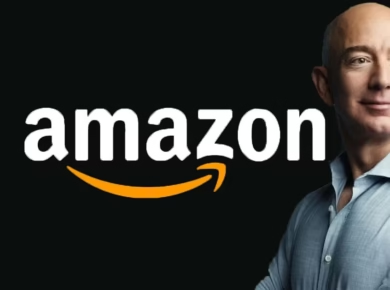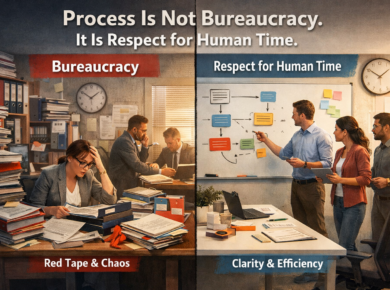Avoiding the Trap of Incrementalism: Lessons from Zero to One
Introduction
In the fast-moving world of startups and innovation, many businesses fall into the trap of incrementalism. This means improving something that already exists rather than creating something new. In his bestselling book Zero to One, Peter Thiel warns against this mindset. He argues that real progress happens when we go from “zero to one,” not from “one to n.”
Incremental progress feels safe. But it often leads to stagnation. Bold thinking and breakthrough ideas are what drive real innovation.
In this blog, we will explore:
- What incrementalism is
- Why it’s dangerous for startups
- Key lessons from Zero to One
- Real-world examples
- How you can avoid this trap
Let’s dive in.
What Is Incrementalism?
Incrementalism is the idea of making small improvements. It’s like upgrading a phone’s camera instead of inventing the smartphone itself. Companies focused only on doing more of the same often lose their edge.
For example:
- Adding a feature to an existing app
- Making a car more fuel-efficient
- Launching a faster version of the same software
These steps are safe. But they rarely create something truly new.
Why Is Incrementalism So Common?
Most people follow the crowd. They look at what others are doing and try to do it better. Schools teach us to play it safe, follow rules, and avoid failure. These habits kill bold ideas.
Peter Thiel says, “Brilliant thinking is rare, but courage is in even shorter supply.” Many entrepreneurs copy successful models instead of inventing their own.
Reasons include:
- Fear of failure
- Lack of original vision
- Pressure to show quick results
- Market competition
The Problem With Incremental Thinking
1. It Kills Innovation
Incrementalism limits creativity. You only think inside the existing box. New problems need new solutions.
2. It Encourages Mediocrity
When you aim small, you get small results. Bold ideas may fail, but they also have a higher chance to change the game.
3. It Creates Commodity Businesses
If everyone is doing the same thing, there’s no way to stand out. You compete on price, not value.
Zero to One: The Case for Bold Innovation
Peter Thiel says going from 1 to n means copying. Going from 0 to 1 means creating. It’s the difference between:
- Another ride-sharing app vs. the first Uber
- A better social network vs. the first Facebook
- A faster search engine vs. the first Google
Secrets: The Key to Breakthrough Ideas
Thiel believes that every great business is built on a secret. A secret is a unique insight others haven’t discovered. If your startup is based on something everyone knows, you have no edge.
Ask yourself: What important truth do few people agree with you on?
Real-World Examples
Google vs. Yahoo
Yahoo focused on being a portal. Google focused on building a smart search algorithm. One was an upgrade. The other changed how the web worked.
Tesla vs. Traditional Automakers
While other companies improved gas engines, Tesla bet everything on electric. That was not incremental—it was revolutionary.
SpaceX vs. NASA
NASA moved slowly. SpaceX took bold risks. It reused rockets and cut launch costs. That’s zero to one thinking.
How to Avoid the Trap of Incrementalism
1. Think Like a Founder, Not a Manager
Managers improve what exists. Founders create what doesn’t. To build something new, you need vision, not just efficiency.
2. Ask Better Questions
Avoid asking “How can we make this 10% better?” Instead ask, “What hasn’t been done yet?”
3. Focus on Unique Insights
Find a secret—something valuable that few people see. Build your startup around that.
4. Build for the Future, Not Just Today
Think long-term. Will your idea still matter in 10 years? If not, think again.
5. Don’t Be Afraid to Be Different
Bold ideas often sound crazy. That’s why most people avoid them. But crazy ideas are where true innovation starts.
The Role of Monopoly in Bold Thinking
Thiel believes monopolies are not evil—they are a sign you’ve built something truly unique. Great companies don’t compete. They dominate.
Amazon didn’t become huge by selling books. It became huge by creating a new way to buy everything online.
Focus on:
- Proprietary tech
- Strong branding
- Network effects
- Economies of scale
These help create a monopoly—and avoid the incremental trap.
Contrarian Thinking: Go Against the Crowd
In Zero to One, Thiel urges founders to think independently. The best ideas are often unpopular at first. If everyone agrees with you, it’s probably not a breakthrough.
To find breakthrough ideas:
- Challenge common beliefs
- Spot trends early
- Combine ideas from different fields
Final Thoughts: Build the Future You Want to See
Avoiding incrementalism means betting on the future. It means being bold when others play it safe. It means choosing risk, creativity, and courage.
Zero to One is more than a business book. It’s a call to invent. If you’re building something—anything—ask yourself:
“Am I copying the past or creating the future?”
Go from zero to one. Not one to many.
Key Takeaways
- Incrementalism is safe but limited.
- True innovation comes from bold, unique ideas.
- Ask deep, original questions.
- Focus on secrets and long-term thinking.
- Think like a founder, not a follower.
Suggested Reading
- Zero to One by Peter Thiel – Buy from here zero-to-one
- The Lean Startup by Eric Ries – https://www.amazon.in/Lean-Startup-Entrepreneurs-Continuous-Innovation/dp/0307887898
- The Innovator’s Dilemma by Clayton Christensen – https://hbr.org/book/innovators-dilemma
- Peter Thiel on monopolies – https://www.wsj.com/articles/competition-is-for-losers-1410535536









